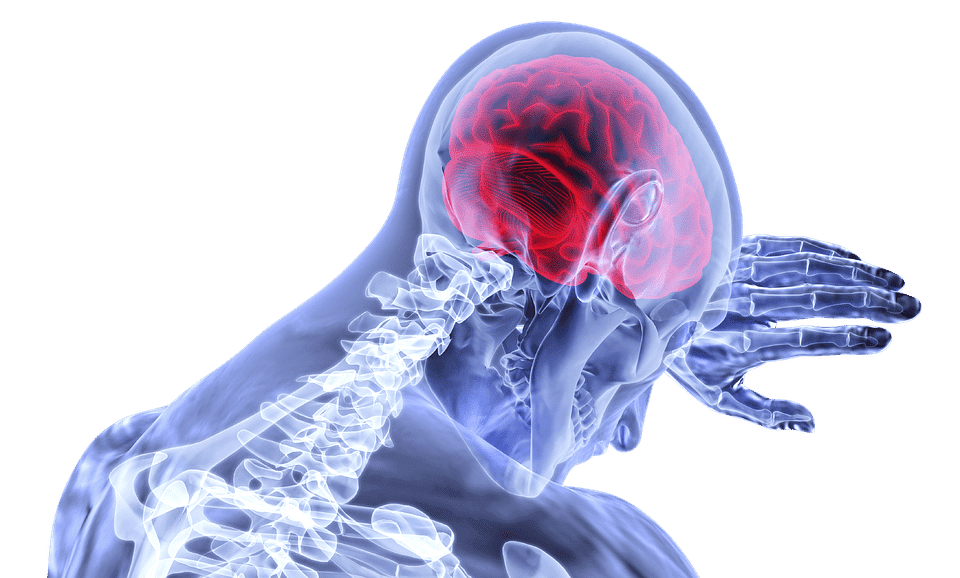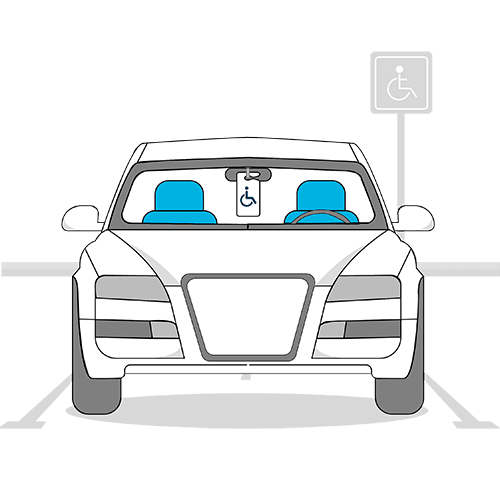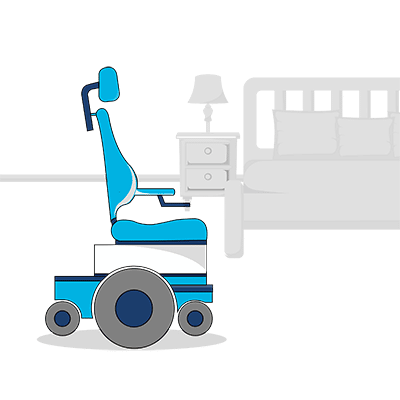What is dementia and how is it linked to Alzheimer’s disease, or are they the same thing? What is Alzheimer’s exactly? Many (most?) of us don’t understand the differences between Alzheimer’s vs dementia so this article aims to provide the answers.
As we grow older, everyday activities can take a little longer and that’s OK. But with dementia (we’ll get to Alzheimer’s disease further on) our brain can be affected beyond the normal ageing process. This can make ordinary things like having a conversation with a friend, remembering what happened 10 minutes ago or pouring milk into our tea harder and sometimes impossible.
While dementia can affect younger people it mostly affects people as they age. Everyone has to age and we all hope to be able to enjoy it as much as possible. That’s why it’s important to be armed with information about potential health issues and how to keep them at bay.
With this in mind, Blue Badge looks at what dementia is and how to best safeguard our brains.

What is dementia?
Dementia is a syndrome or group of diseases that affect the brain. It’s usually chronic and progressive and affects our cognitive functions, like thinking, remembering and even moving. As a result, dementia can affect a person’s ability to manage their daily living, causing memory loss and confusion around everyday tasks.
Confusion about activities, time and place, and social interaction can be caused by many other things – from trauma to stress and natural ageing. However, with dementia the degree is more extreme and because it’s a progressive condition it can eventually become a cognitive and physical disability requiring daily support.
What’s the difference with Alzheimer’s vs dementia?
Dementia is the umbrella term for a range of diseases affecting cognitive function. The number one cause of dementia is Alzheimer’s disease. In fact Alzheimer’s disease is sometimes also called senile dementia.
Many of the symptoms and even treatments for Alzheimer’s disease vs dementia are the same. However there are several diseases other than Alzheimer’s disease that can also result in dementia, such as Parkinson’s disease and stroke.

What is Alzheimer’s disease?
Alzheimer’s disease is a physical progressive disease that causes the brain to shrink as neurological connections and cells begin to die. The area first affected is the part of the brain associated with learning.
Learning is associated with memory, recall and the ability to reason so these are usually the first functions that a person stops being capable of. Sadly, not only is Alzheimer’s disease progressive, meaning it worsens over time, but because it’s also considered irreversible.
Dementia symptoms
When comparing Alzheimer’s vs dementia one similarity is very obvious – dementia symptoms also progress in intensity over time. They can affect thought as well as movement.
Again, dementia is the umbrella term for a range of diseases affecting cognitive function and its primary cause is Alzheimer’s disease. Here’s a non-exhaustive list of symptoms of dementia:
- Confusion
- Loss of memory (words, names and even people)
- Disorientation (not knowing where or when one is, even in familiar spaces like home)
- Mobility issues (having difficulty doing basic things like walking)
The symptoms of dementia can eventually lead to the use of a wheelchair and the need for a full-time person to help with care and hygiene.

What causes dementia?
Our brains are incredible. We’re constantly building and strengthening neurological pathways and connections. Inside they’re like a mini storm with electrical activity and wiring that’s incredibly complex and the subject matter of ongoing research.
Our brains are constantly changing and evolving throughout our lifetime but some changes, such as damage to the brain, can result in dementia. There are several causes of dementia and some have even been named different types of dementia.
We already know Alzheimer’s disease is the top cause but here are several other conditions that can also cause dementia:
- Vascular dementia. This includes damaged blood vessels, reduced blood flow to the brain and stroke
- Multiple sclerosis. Causes nerve damage in the brain and is likely a genetic autoimmune disease
- Familial Alzheimer’s disease. In some cases dementia is linked to a familial gene
- Traumatic brain injury. Usually this type happens through repetitive injury (like boxing for example)
- Huntington’s disease. Genetic mutation that causes the death of certain cells in the brain and spinal cord
These are some of the main causes of dementia, however they aren’t the only ones. Not all the causes are fully understood and much research is needed to improve treatment and management, and to help prevent dementia cases from rising.
How many Australians have dementia?
According to the Australian Institute for Health and Welfare, nearly 400,000 Australians are living with dementia. Of these cases, almost two thirds are women.
Another way of looking at the figures is by age. There are around 15 people in every 1,000 under the age of 65 years living with dementia. This figure rises sharply to 83 people in every 1000 from 65 years onwards – that’s 1 in every 12 senior Australians.
Considering that there’s no NDIS after 65 (unless you’re already a participant before your 65th birthday), this is a big load on the aged care system and no doubt a big cause of the demand for home care packages.

How to prevent dementia
By exploring what is dementia, it’s possible to see that it unfortunately can’t always be prevented. If the cause is ageing or genetics for example, these aren’t things you can avoid.
However, because brain and heart health (blood flow to the brain) are the key areas affected by dementia, keeping these healthy are great precautions to take.
Here’s a list of recommendations on risk factors you can mitigate through various means:
- Take vitamins. Take the recommended doses of vitamins B6, vitamin B12, vitamin D (which you get from sunshine) and folic acid, which helps stave off deficiencies that increase risk of dementia
- Use your brain. Your brain is filled with muscles and the more you use them the stronger they become. Reading, learning, doing puzzles and getting involved in other mental health and wellness activities can help safeguard your valuable asset
- Don’t smoke. Breathing in toxins (including exhaust smoke) can become a risk factor over time
- Avoid excessive drinking. Large amounts of alcohol can cause neurological damage, increasing the risk of dementia
- Eat well and stay a good weight. Keeping your cholesterol and therefore blood pressure low also reduces risk
Speaking of keeping cholesterol down, we discuss this in our article about the physical benefits of owning a pet.

Protecting mobility
Having insurance for mobility aids such as a wheelchair or mobility scooter can be invaluable. Wheelchairs and mobility scooters aren’t cheap to buy, fix or replace. But with wheelchair insurance or mobility scooter insurance these costs can be covered by your plan.
Modified vehicles that are designed to carry a wheelchair or mobility aids can also be insured this way. Find out about getting up to 25% off disability car insurance. Click below to get a quote.








